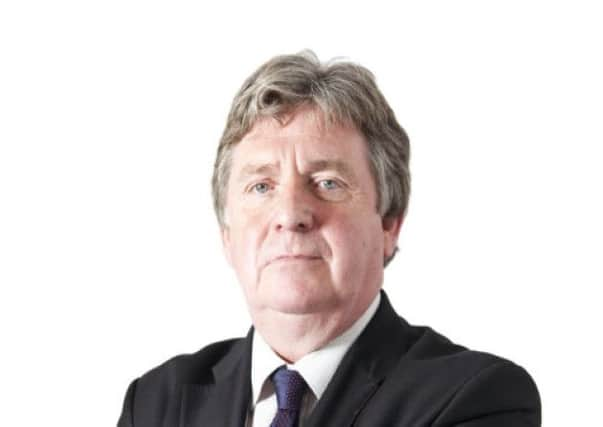Comment: Sanctioning Russia fraught with problems


However, pressure is rising in some quarters for more draconian and widespread punitive measures against president Vladimir Putin’s aggression as his troops are stationed menacingly on the east Ukrainian border.
If there was a further land grab by Russia, this time with even less legitimacy than the capture of once- Russian owned Crimea, the pressure for a ratcheting up of economic and financial sanctions would become virtually irresistible.
Advertisement
Hide AdAdvertisement
Hide AdIt surely gives Russia pause for thought, even if Putin’s bitter regret at what he has called the greatest geo-political catastrophe of the 20th century – the 1991 break-up of the Russian dominated Soviet Union – ultimately trumps fear of sanctions.
Russia is a big country, but, apart from a velvet-lined class, not a particularly rich one. Its stock market is brittle, being overwhelmingly dominated by energy plays.
Any withdrawal of western business interest in joint ventures, a squeeze on imported western financial market expertise, and so on, would not just be gesture politics, it would have strong economic and political significance.
Furthermore, memories are still relatively fresh in Russia of the country’s humiliating debt default and rouble devaluation of the late 1990s that followed the car boot sale of nationalised assets a few years earlier.
Meanwhile, Russia no longer has the same retaliatory leverage via the gas pipeline from the country through Ukraine to the European Union. If Putin via Gazprom effectively turned off the taps, as some think is likely in the current flashpoint, it would not have the same effect on the EU.
The bloc now gets roughly 50 per cent of its gas through Ukraine, having built up other supply routes and storage. That compares with 95 per cent in the mid-1990s. Britain imports relatively negligible amounts of energy through that unhappy country.
Even so, sanctions come with economic costs as well. And it is clear EU capitals would prefer to get away with the minimum amount of effective sanctions against Russia because of the cost of such moves and the law of unintended consequences.
They want to hit Putin, his close associates and those who have grown rich through his “managed democracy” regime – not build up grassroots support among the general Russian population for the Kremlin’s newly aggressive foreign policy.
Advertisement
Hide AdAdvertisement
Hide AdTargeted, limited sanctions, together with a successful implementation of the announced €11 billion (£9bn) aid package to Kiev, is the EU’s favoured path. Whether the tense political standoff allows that to happen, or sanctions spiral upwards with a momentum of their own, remains to be seen.
Echoes of Debenhams in Ashley’s HoF play
I SUSPECT Mike Ashley is a good poker player. The Sports Direct and Newcastle United FC owner will probably flip the 11 per cent stake in retailer House of Fraser he bought from his Scottish chum, Sir Tom Hunter, and sell it to Sanpower of China for a tidy profit.
Echoes of Ashley’s tortuous moves around Debenhams recently?
Sanpower is in the home straight of buying House of Fraser. A full house?